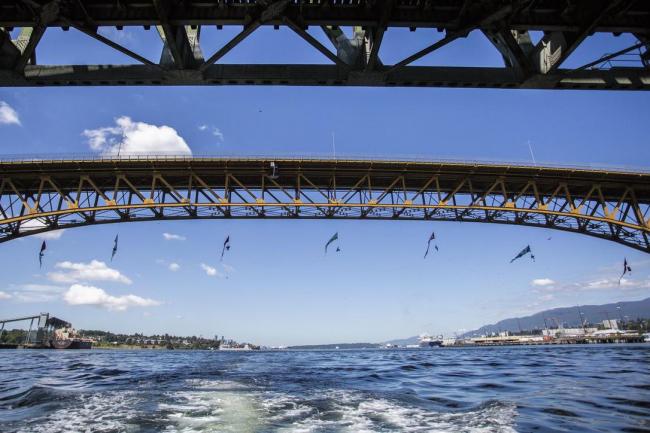Articles Menu

July 9, 2018 - Just imagine if a consortium of First Nations owned a sizable stake in the Trans Mountain pipeline and were determined to push it through because it would put more money in the hands of Indigenous people.
There is a plan afoot to do exactly that and later this month First Nations leaders will meet in Vancouver to advance the idea.
It’s a bold move but it would also give some First Nations the kind of control over resource projects in their own backyards they have long dreamed of.
Of course, not all First Nations would be happy.
An Indigenous-owned pipeline would certainly create a quandary for coastal B.C. First Nations, environmentalists and the B.C. government, which is adamantly opposed to the $7.5 billion project that would move diluted bitumen from Alberta to the B.C. coast for export; it means more oil tankers plying B.C’s shores.
The pipeline equity proposal is being spearheaded by Chief Jim Boucher of Fort McKay, which sits at the epicentre of oilsands development, and has already benefitted handsomely from deals negotiated between the band and corporate players such as Suncor and Shell.
Long supportive of the controversial pipeline, which has recently been taken over by the federal government, Boucher had been reluctant to get into a spat with coastal First Nations opposing it.
But now Boucher is not alone. First Nations in the oilsands region that were once adamantly opposed to development are also on board.
Most notable is Chief Alan Adams of Fort Chipewyan. In recent years he enticed both Neil Young and Jane Fonda to campaign against oilsands development in his territory.
“The fact is, I am tired. I am tired of fighting. We have accomplished what we have accomplished. Now let’s move on and let’s start building a pipeline and start moving the oil that’s here already.” Adams told the CBC just after First Nations and Métis leaders from the region met with Justin Trudeau in Fort McMurray in April.
Last year Fort McKay and the Mikisew Cree, who at one point also wrangled with oilsands developers, raised $545 million through a bond issue to acquire a 49 per cent stake in Suncor Energy’s oilsands storage facilities north of Fort McMurray, an asset that will provide steady, long-term cash flow.
Stephen Buffalo, CEO of the Indian Resource Council, which represents 130 oil and gas producing First Nations, is also on board. As are some First Nations in the interior of B.C.
For Buffalo, the move to buy a stake in Trans Mountain “is a logical extension” of the participation by Indigenous people in natural resource projects which impinge on their territories.
There will be those who will exacerbate the division between First Nations who oppose the pipeline and those who stand to benefit from it in order to trivialize their efforts. But that division also exists among other Canadians. Some see it as an economic benefit others see it as an environmental disaster.
Just last week Greenpeacers, including Will George of the Tseil-Waututh Nation, hung from a bridge in Vancouver in order to stop oil tankers from passing under. After being extracted and arrested by the RCMP they say they are still determined to do whatever it takes to stop the Trans Mountain pipeline.
But what if stopping the pipeline deprives some First Nations of a leg up through financial security? What if First Nations participation could help solve the impasse between people on the coast who fear that an oil spill will wreck their coastline and fisheries? What if the impasse could be solved this way rather than through the courts?
So far the coalition of environmentalists and First Nations opposed to the pipeline has presented a strong united front that has succeeded in stalling construction of the pipeline. But First Nations have long sought to have the historical injustices committed against them rectified so they can be on an equal footing with the rest of Canadians.
A significant equity stake in Trans Mountain would be a step in that direction.
Besides, how much longer should they have to wait?
Gillian Steward is a Calgary-based writer and freelance columnist for the Star. Follow her on Twitter: @GillianSteward
Photo: Seven Greenpeace activists opposed to expansion of the Trans Mountain pipeline hang from Vancouver's Iron Worker's Memorial Bridge last Wednesday. They called the protest an "aerial blockade" and said they'd blocked two tankers from leaving Kinder Morgan's Westridge Marine Terminal. (JESSE WINTER / STAR METRO)